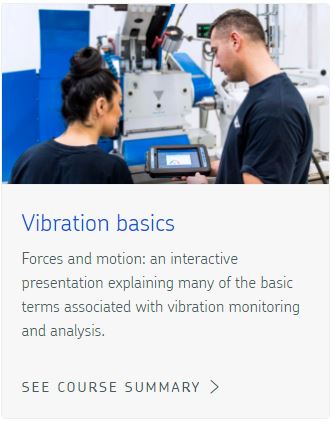WI201 Condition Based Maintenance
This course will introduce the various concepts of Condition Based Maintenance. Students will be able to understand and operate the various tools used in identifying machinery health problems and describe the machine condition to provide measurable improvements in performance. The course will particularly emphasize the use of machinery vibration as a tool to determine machine health and identify root cause problems.
Description
• Common types of Maintenance
• Basics of Condition Monitoring Technologies
• What is Vibration?
• Setting up for Vibration Measurement and other measurable parameters.
• Introduction to Infrared Thermography - Cameras and Thermometers
• Introduction to Lubricant Analysis
• Introduction to Motor Diagnostics
• Introduction to Ultrasonics and Acoustics
• Practical exercises using all of the tools as discussed during the course
Key Learning Outcomes
• Students will be able to determine the condition of machinery as it operates, to schedule the most efficient and effective repair of problem components prior to failure.
• Ideal condition based model - detection, overall analysis, correction, verification. Examples of condition based parameters - vibration, temperature, thermography, ultrasonics.
• Introduce the concept of vibration and how it applies to bearing vibration analysis in the detection of bearing defects and faults
• Brief introduction of spectrum analysis, and an overview of how analysts recognise and analyse typical machinery problems.
• Setting up overall vibration measurement and other parameter results onto trend charts, types of condition monitoring alarms, vibration signal processing methods.
